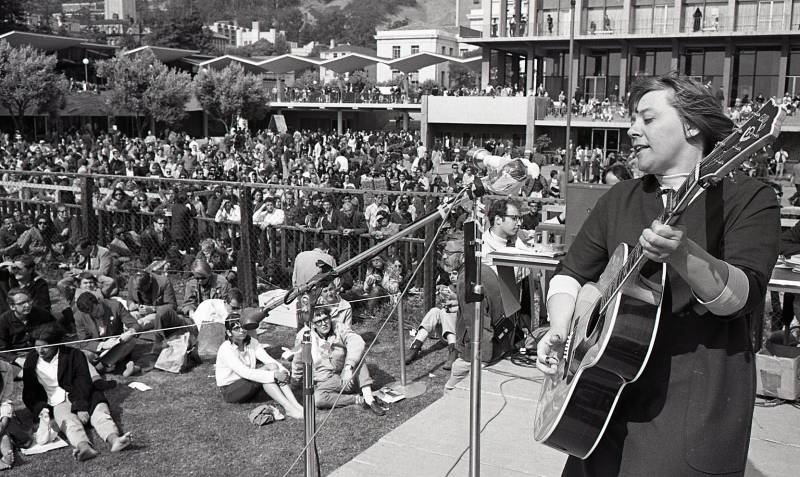Barbara Dane, a jazz, blues and folk music giant who tirelessly championed social justice movements from around the world, died of heart failure in her Oakland home on Oct. 20 at age 97, her daughter Nina Menendez told the San Francisco Chronicle.
Praised for her rich voice, Dane was known not only for singing with Louis Armstrong and Muddy Waters, but also for founding Paredon Records with her husband, music scholar and activist Irwin Silber. From 1970 to 1985, the label put out over 50 albums that addressed racial justice, feminism and anti-imperialism, giving a platform to activist artists from Cuba, Palestine, Puerto Rico, Mexico, Greece, the United States and many other places. Their work is now archived in Smithsonian Folkways.
“I saw that whenever the movement in a particular country was strong, there was an emerging music to go with it,” Dane told The New York Times in 2021. “It struck me that this stuff needed to be heard in the voices of the people who wrote the songs.”
Instead of following a conventional path to fame, the Detroit-born Dane began her career as a teenager in the 1940s singing at protests. “Why would I want to stand in front of a band with a low-cut dress singing stupid words when I could be singing for workers who are on strike?” she said in the Times interview about her career beginnings. “It didn’t seem like a good bargain to me.”
Dane relocated to San Francisco that decade and became a star of the local post-World War II jazz and blues scene, which also launched the careers of Etta James and Sugar Pie DeSanto. She made her debut as a recording artist with her 1957 album, Trouble in Mind. As a white artist, she defied convention by touring with Black musicians like Willie Dixon and Memphis Slim during segregation. In 1961, Dane opened her own club in San Francisco’s North Beach, Sugar Hill.


